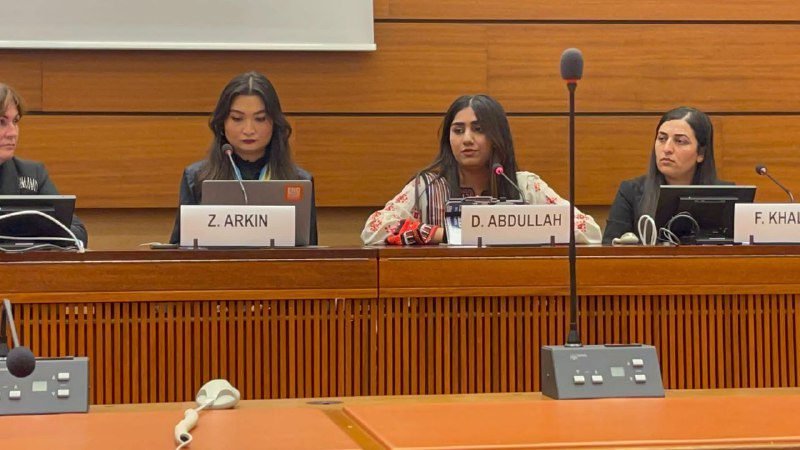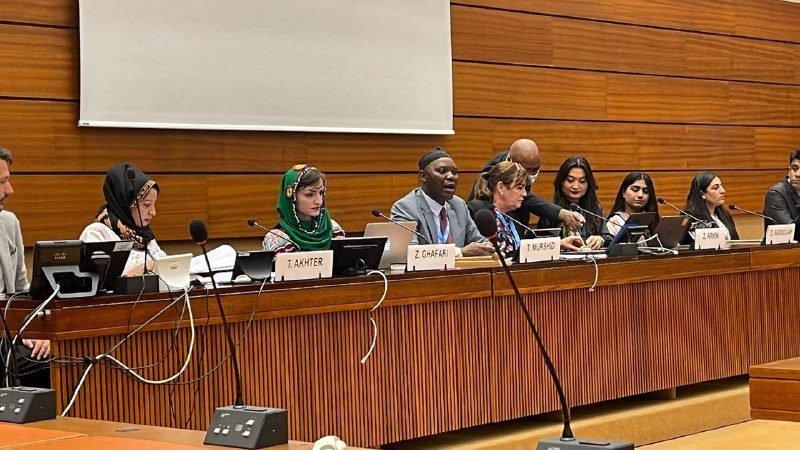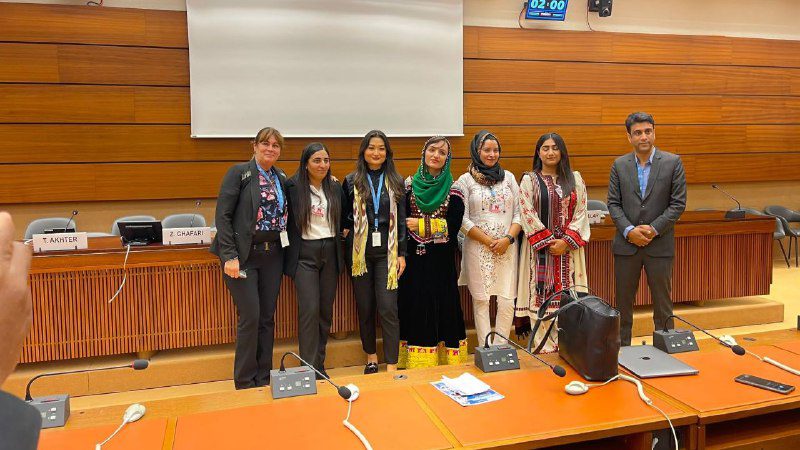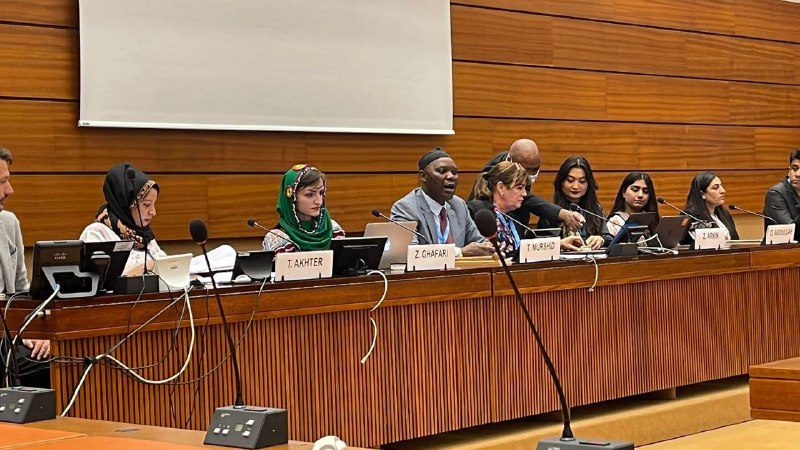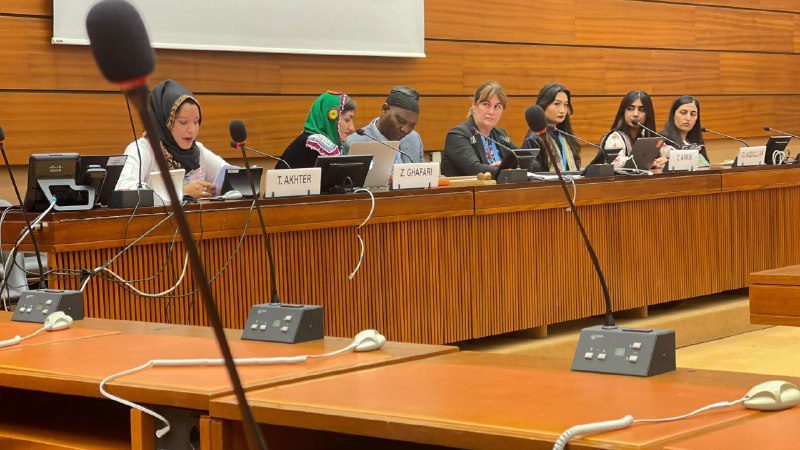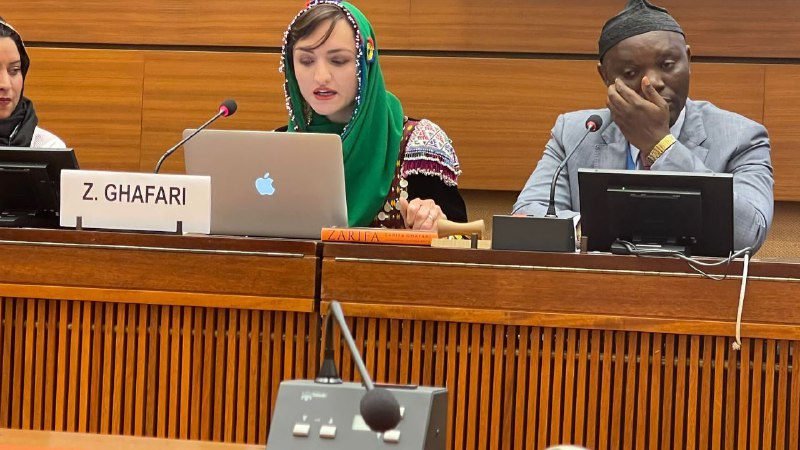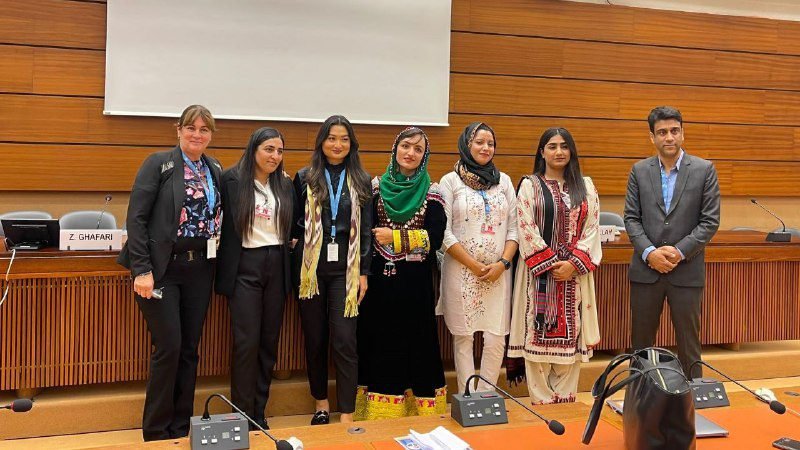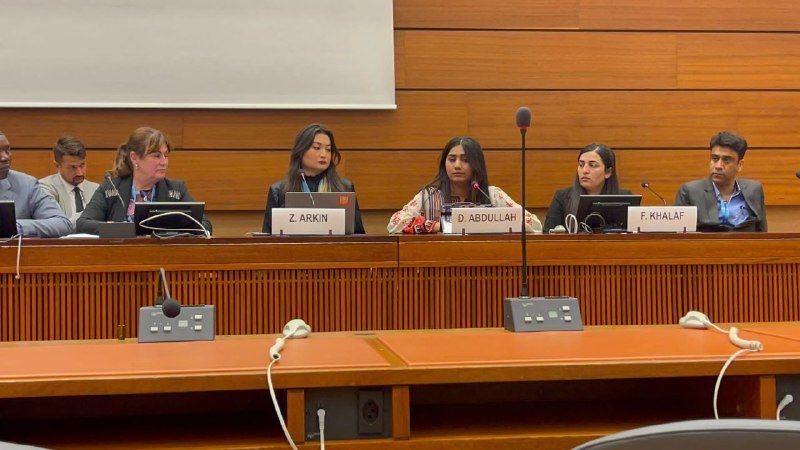GENEVA: Baloch National Movement Germany Chapter Vice President Sammul Baloch participated in the Side Event of the 51st session of the United Nations Human Rights Council, Geneva. She participated in the program and discussed the problems faced by women in Balochistan.
She said that the problems of women in Balochistan and other regions are different; here (in the West) women demand the right to better facilities while there women demand only the right to live in their motherland.
Sammul Baloch said that Balochistan is divided between three countries, Pakistan, Afghanistan and Iran, and the Baloch are kept under subjugation. Baloch students are lacking in educational opportunities. Students had been protesting for their rights for the past few days in Balochistan.
She said there are no educational facilities in Balochistan; there are buildings but there is no teaching staff. Baloch boys and girls want to study but the state of Pakistan had failed to give them the right to education. Consequently, Baloch Students head to Pakistani Punjab and Sindh to get higher education. But there they are harassed continuously. Where they are questioned about how to use a gun and which political party they belong to, instead of their educational future.
“I don’t think these are the questions a student should be asked,” added she.
“One of the major issues is that the men of the family have forcibly disappeared and the women have been left behind at home. Pakistani army personnel break into homes and sexually assault women in front of their children. The conditions faced by women in Balochistan cannot be expressed in words. Even abroad, Baloch women are not safe from the evil of Pakistan. We know Karima Baloch, who was killed because she spoke for the rights of Baloch.”
She said that according to the United Nations report, Balochistan is a poor region, but I strongly disagree because Balochistan is rich in natural resources. Balochistan has a coast that China is using for its interests. I request the UN to ask China what it is doing in Balochistan. China’s project on the CPEC route forces people to relocate and those who refuse to do so are subject to enforced disappearance.
Samul Baloch also discussed the problems faced by women after the recent floods in Balochistan. 60 thousand pregnant women are affected in the flood-hit areas of Balochistan. Many women gave birth to children in the flood situation. The state of Pakistan has failed to meet their needs and the international media has failed to highlight their problems.
She concluded, “I firmly believe that the funding that Pakistan receives for flood victims will be subject to corruption.”


